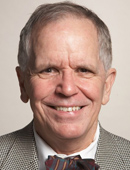
William H Redd, PhD
About Me
Dr. Redd has been engaged in research on psychosocial-oncology and cancer prevention and control for more than 35 years and is credited for introducing behavioral psychology and behavioral medicine to research and clinical practice in cancer supportive care. His most recent research on controlling cancer-related fatigue has drawn considerable attention, including invitations to present at international meetings such as the Biotechnology World Congress, the World Congress of Psycho-Oncology and Psychosocial Academy, and the International Conference of Behavioral Medicine, along with two articles (2016, 2018) and an interview (2018) with the Wall Street Journal . In the last three years he has lectured at eleven universities and/or medical centers. For 40 years he has had NIH research support and a series of five NIH K-05 Research Scientist Awards. His current research examines: 1) the contribution of circadian rhythm disruption in cancer-related somatic and behavioral problems and 2) the role of systematic light exposure and programmed environmental illumination to ameliorate negative sequela of cancer and its treatment. His mission is to apply behavioral principles to understand and treat negative sequela of cancer and its treatment.
Language
English
Position
PROFESSOR | Population Health Science and Policy, PROFESSOR | Oncological Sciences
Awards
2015
Holland Distinguished Leadership Award
International Psycho-Oncology Society
2012
Research Mentorship Award
Society of Behavioral Medicine
Research
My research investigates the role of bio-behavioral factors in cancer prevention and control (CPC). Seminal in my overall program of research was a series of relatively straightforward studies I conducted to investigate behavioral side effects of invasive cancer treatment, including: 1) conditioned anticipatory nausea, vomiting and immune suppression in chemotherapy patients; 2) adjustment disorders in patients in protective insulation; 3) conditioned eating disorders in patients following cancer surgery; and 4) cognitive distraction to control procedural distress in children. Essentially, I found that cancer patients become aversively conditioned to aspects of their treatment and that relatively simple procedures incorporating distraction and relaxation training effectively control such behavioral aversions. The findings were clinically important, conceptually intriguing, and seen as opening the way for behavioral intervention in CPC. Over the last 20 years my scholarly focus has broadened from small-N clinical studies of behavioral symptoms to include: 1) prospective investigations of adjustment disorders among mothers of pediatric patients; 2) longitudinal analyses of psychosocial adjustment among survivors of bone marrow/stem cell transplantation (HSCT); 3) controlled trials of Cognitive-Behavior Therapy (CBT) to reduce anxiety-related disorders in cancer survivors; and 4) studies of interventions to increase participation in cancer prevention among medically underserved minorities. I am currently involved in two new areas of research. The first is an investigation of the effects of systematic light exposure (SLE) on alleviating cancer-related fatigue (CRF). CRF is a persistent sense of exhaustion related to cancer or its treatment which can severely interfere with activities of daily living. It affects over 40% of survivors of hematopoietic stem cell transplantation (HSCT). To date, CRF treatments have produced only moderate results. I am about to begin an initial clinical trial to assess the effect of SLE with long-term HSCT survivors, and to determine the feasibility and acceptability of SLE as an intervention for CRF. We will compare two different light conditions to: determine the impact of SLE on fatigue, sleep quality, and quality of life, using objective and subjective measures; investigate the possible mediating effects of depression on fatigue; and assess feasibility and acceptability of SLE as an intervention for CRF in cancer survivors. The second area of my current research is the investigation of the dissemination of evidence-based interventions to cancer supportive care professionals. I am involved in five active dissemination studies which investigate training in the implementation of: cancer clinician-implemented CBT with survivors (PI); patient navigation to increase minority participation in cancer screening (Co-PI); cancer clinical trials by community cancer nurses and administrators (Co-PI); building cancer supportive care programs (Co-I); and psychosocial screening programs (Co-I). All of the studies are the products of collaborative relationships I have established with my post-doctoral trainees, fellow faculty members and colleagues from other medical centers and universities.
Publications
Selected Publications
- The Effects of Light Therapy on Cognitive Function and Stress in Women With Breast Cancer Before Systemic Treatment. Snaefridur Gudmundsdottir Aspelund, Thorhildur Halldorsdottir, Gudjon Agustsson, Hannah Ros Sigurdardottir Tobin, Lisa M. Wu, Ali Amidi, Kamilla R. Johannsdottir, Susan K. Lutgendorf, Rachel Telles, Huldis Franksdottir Daly, Kristin Sigurdardottir, Mariana G. Figueiro, William H. Redd, Heiddis B. Valdimarsdottir, Birna Baldursdottir. Cancer Medicine
- Examining the Efficacy of Bright Light Therapy on Cognitive Function in Hematopoietic Stem Cell Transplant Survivors. Lisa M. Wu, Heiddis B. Valdimarsdottir, Ali Amidi, Kathryn J. Reid, Sonia Ancoli-Israel, Katrin Bovbjerg, Rina S. Fox, Lauren Walker, Amreen Matharu, Erin T. Kaseda, John P. Galvin, Kehinde Adekola, Gary Winkel, Frank Penedo, William H. Redd. Journal of Biological Rhythms
- Light therapy for cancer-related fatigue in (Non-)hodgkin lymphoma survivors: Results of a randomized controlled trial. Daniëlle E.J. Starreveld, Laurien A. Daniels, Jacobien M. Kieffer, Heiddis B. Valdimarsdottir, Jessie de Geus, Mirthe Lanfermeijer, Eus J.W. van Someren, G. Esther A. Habers, Jos A. Bosch, Cécile P.M. Janus, Dick Johan van Spronsen, Roel J. de Weijer, Erik W.A. Marijt, Eva de Jongh, Josée M. Zijlstra, Lara H. Böhmer, Margreet Houmes, Marie José Kersten, Catharina M. Korse, Huub H. van Rossum, William H. Redd, Susan K. Lutgendorf, Sonia Ancoli-israel, Flora E. van Leeuwen, Eveline M.A. Bleiker. Cancers